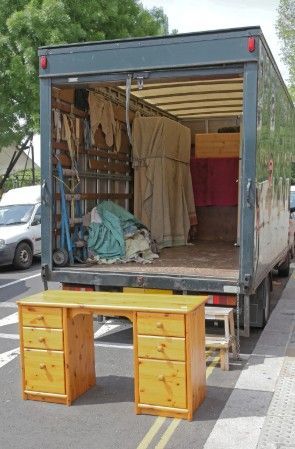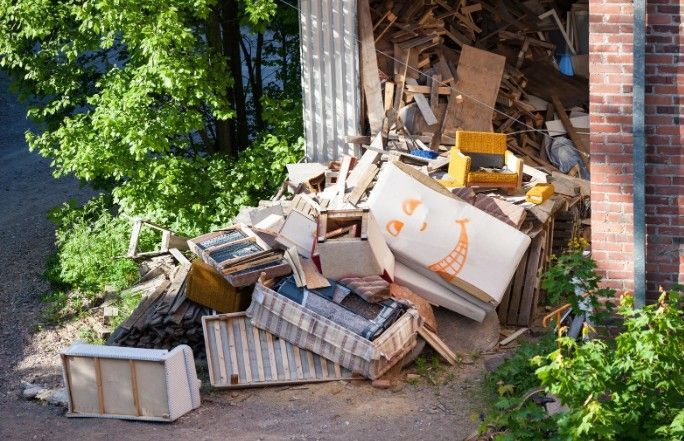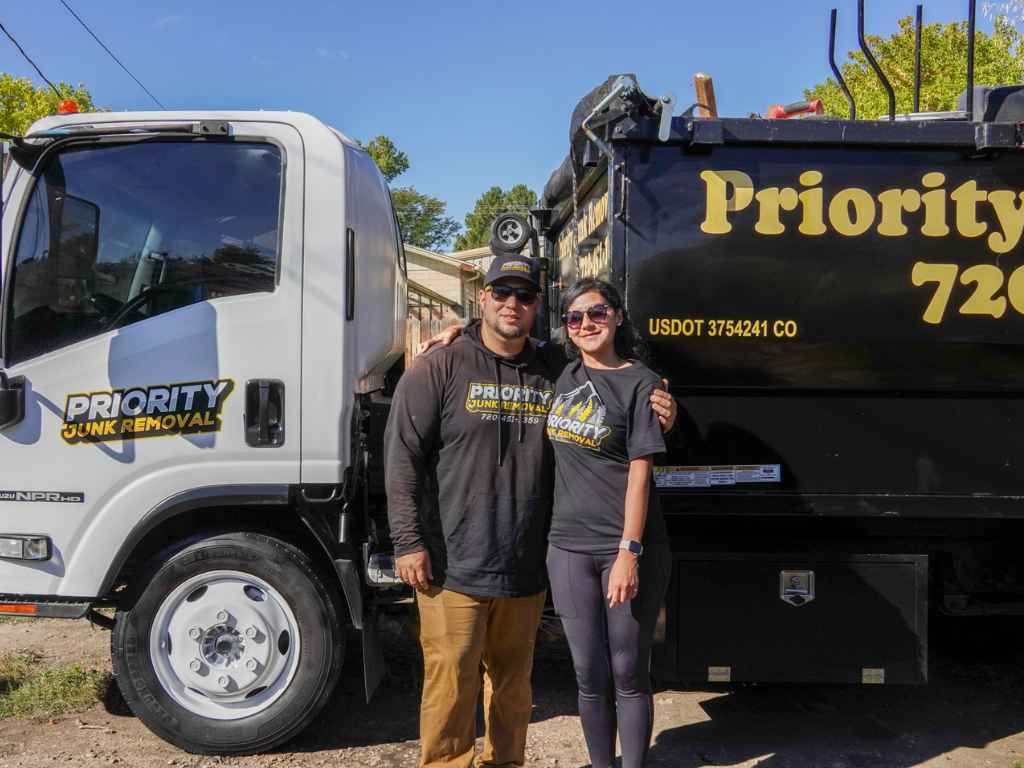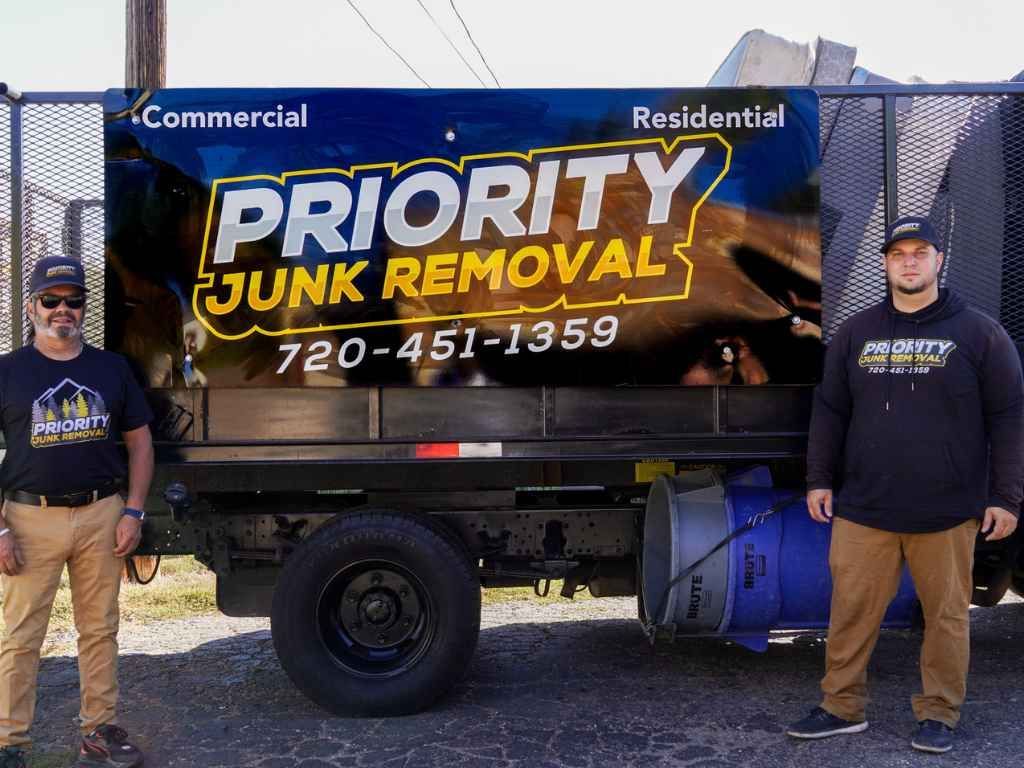The Environmental Benefits of Demolition Cleanup
Demolition projects often bring to mind heaps of rubble, dust clouds, and a whole lot of chaos. But beneath that destruction lies an opportunity—a chance to make a real difference for the environment. Demolition cleanup isn’t just about hauling away debris; it’s about responsibly managing waste, reducing landfill overflow, and ensuring valuable materials find new life.
The environmental benefits of demolition cleanup are substantial, transforming a messy process into a sustainable practice. When done thoughtfully, demolition cleanup reduces pollution, conserves resources, and supports a circular economy where materials are reused rather than discarded. It’s not just about cleaning up—it’s about giving materials a second chance while keeping the planet in mind.
What We Offer
Eco-Friendly Debris Removal
We specialize in eco-friendly debris removal to keep demolition waste out of landfills. Our team carefully sorts materials, salvaging wood, metal, and concrete for recycling and repurposing. This reduces the strain on natural resources and minimizes environmental impact. We handle the hard work, ensuring responsible disposal and a cleaner future.
Material Recycling and Reuse
Our demolition cleanup service focuses on material recycling and reuse. We sort through debris to identify recyclable materials like wood, metal, and concrete. These are processed for future construction projects, reducing the need for raw materials and lowering the environmental footprint of new developments. Sustainability is at the core of our process.
Safe Hazardous Material Handling
Hazardous materials like asbestos, lead, and chemicals can pose serious environmental risks if not handled properly. We specialize in safe removal and disposal, adhering to environmental regulations. Our team ensures that these materials are contained and processed without harming the environment, protecting both people and ecosystems.
Site Cleaning and Restoration
After demolition, we go beyond just removing debris—we restore the site. Our team levels surfaces, removes excess materials, and prepares the area for its next phase. This ensures that the land is clean, safe, and ready for future use while minimizing environmental impact. A fresh start begins with a clean site.
Efficient Waste Management
Effective waste management is key to reducing environmental impact. We implement sorting, recycling, and proper disposal methods to ensure that waste is handled responsibly. Our approach minimizes landfill contributions and maximizes the potential for material reuse, supporting a cleaner, more sustainable construction cycle.
Benefits
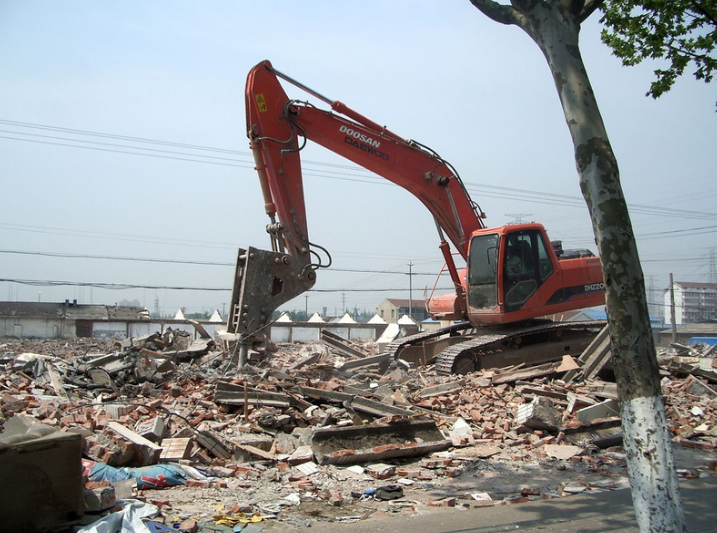
Reduced Landfill Overflow
Demolition projects generate massive amounts of waste, much of which ends up in landfills. Our cleanup services reduce this overflow by recycling and repurposing materials. Less waste in landfills means fewer emissions from decomposition and less pressure on already overburdened waste management systems. It’s a win for the planet.
Lower Carbon Footprint
Recycling and repurposing demolition materials reduces the need for new production, which cuts down on carbon emissions from manufacturing and transportation. By reclaiming wood, metal, and concrete, we help lower the overall carbon footprint of construction projects. Fewer emissions mean cleaner air and a healthier environment.
Pollution Prevention
Improper disposal of demolition waste can lead to soil and water contamination. We prevent this by carefully sorting and properly handling materials, including hazardous substances. Our team follows strict guidelines to ensure that harmful chemicals don’t seep into the ground or water supply, protecting ecosystems.
Conservation of Natural Resources
Reusing materials from demolition projects reduces the need to extract new resources like timber, metal, and stone. This helps preserve forests and natural habitats while reducing the environmental toll of mining and logging. Sustainable cleanup means less harm to nature and more thoughtful resource use.
Support for Circular Economy
Our demolition cleanup services contribute to a circular economy by reclaiming and reusing materials instead of discarding them. Salvaged wood, metal, and concrete find new life in future construction projects. This reduces waste and supports a more sustainable construction industry where resources are valued, not wasted.
Minimizing Landfill Waste Through Effective Cleanup
Demolition cleanup isn’t just about tidying up a site—it’s about minimizing the environmental impact of construction waste. A substantial portion of demolition debris, including concrete, wood, metal, and bricks, can be recycled or repurposed rather than dumped in overcrowded landfills. When these materials are sorted and salvaged properly, they avoid contributing to landfill overflow, which can lead to soil and groundwater contamination.
Toxic runoff from landfills seeps into nearby ecosystems, harming plant and animal life and jeopardizing human health. Effective cleanup directs these materials to recycling or repurposing facilities, reducing the overall strain on landfill capacity. Fewer materials in landfills mean fewer greenhouse gas emissions from decomposing waste and a reduced risk of harmful leachates contaminating natural water sources.
Lowering Carbon Emissions Through Responsible Recycling
Construction and demolition activities are significant contributors to global carbon emissions. The extraction, processing, and transportation of materials like steel, concrete, and wood require massive amounts of energy, generating large carbon footprints. Responsible demolition cleanup helps mitigate this impact by reclaiming and recycling materials rather than discarding them.
For example, recycling metal saves up to 74% of the energy required to produce new metal from raw ore. Reclaimed concrete and wood can be processed and reused in future construction projects, reducing the need for new material production. This lowers overall emissions and decreases the demand for energy-intensive manufacturing. Responsible recycling also reduces transportation emissions since salvaged materials are often processed locally.
Protecting Natural Resources Through Salvage and Reuse
Natural resources like timber, minerals, and stone are finite and increasingly strained by construction demands. Every salvaged piece of wood, metal, or concrete represents a resource that doesn’t need to be newly extracted. Through careful demolition cleanup, materials can be recovered, processed, and reused, reducing the need for deforestation and mining.
For instance, reclaimed wood from demolished structures can be milled and repurposed for new flooring or furniture, preserving forest ecosystems. Similarly, salvaging metal reduces the need for destructive mining operations that damage landscapes and waterways. By minimizing resource extraction, responsible cleanup helps maintain biodiversity and prevent soil erosion. The more materials are salvaged and reused, the less pressure we place on the planet's natural systems.
Preventing Pollution Through Proper Disposal
Demolition projects frequently involve hazardous materials like asbestos, lead paint, and industrial chemicals. If not handled correctly, these substances can leach into the ground and nearby water sources, posing long-term environmental and health risks. Effective demolition cleanup involves identifying, isolating, and properly disposing of hazardous materials according to environmental regulations.
For example, asbestos requires specialized removal procedures to prevent airborne contamination, while lead paint must be carefully contained to avoid soil and water pollution. Proper disposal prevents these toxins from entering the ecosystem, where they can harm plant life, wildlife, and human communities. Clean soil and water are vital for maintaining agricultural health and drinking water safety. Responsible cleanup ensures that hazardous materials are treated with care, protecting ecosystems and public health from long-term damage.
Contributing to a Sustainable Construction Cycle
The construction industry is one of the largest generators of waste worldwide, but demolition cleanup provides an opportunity to shift toward a more circular economy. By recovering materials like wood, metal, and concrete, cleanup crews can supply future building projects with recycled materials, reducing the need for new production. Reclaimed concrete can be crushed and used as a base for new roads, while salvaged wood can be refinished for flooring or furniture.
This reduces demand for raw materials and lowers manufacturing emissions. Efficient cleanup practices also create a market for recycled materials, encouraging builders to seek sustainable alternatives. A circular economy promotes resource efficiency and environmental responsibility, turning demolition waste into valuable building components.
Enhancing Air Quality Through Dust and Debris Management
Demolition generates large amounts of dust and airborne particles, which can severely impact air quality and respiratory health. Fine particles from concrete, wood, and insulation can linger in the air, causing breathing difficulties and increasing the risk of respiratory diseases. Effective cleanup involves dust suppression techniques such as spraying water and using barriers to contain debris. Removing loose materials promptly also reduces the spread of airborne particles.
Improved air quality benefits not only workers on-site but also nearby residents and ecosystems. Cleaner air reduces health risks like asthma and bronchitis while minimizing the environmental impact of construction dust. Effective debris management ensures that work sites remain safe and breathable, while local communities experience fewer disruptions from pollution.
Supporting Biodiversity Through Reduced Habitat Disruption
Construction and demolition activities often disrupt local ecosystems, displacing wildlife and damaging habitats. Poor cleanup can leave behind contaminants that degrade soil health and pollute water sources, further threatening biodiversity. Responsible demolition cleanup includes removing debris, treating contaminated soil, and restoring natural features like vegetation and water channels.
This helps wildlife return to the area and allows plants to recover. Proper handling of waste materials also prevents toxic runoff from reaching nearby wetlands, rivers, and forests. By carefully managing cleanup, ecosystems can rebound more quickly, supporting healthy plant and animal populations. Restored habitats foster balanced ecosystems, ensuring that species diversity is maintained.
Conclusion
Priority Junk Removal is dedicated to providing eco-friendly demolition cleanup services that make a positive impact on the environment. Located at 6091 South Spotswood Street, Littleton, Colorado 80120, we focus on reducing waste, supporting recycling efforts, and ensuring that as much material as possible is repurposed rather than sent to landfills.
Our experienced team handles all aspects of demolition cleanup with care and efficiency, sorting materials and disposing of them responsibly to minimize environmental harm. We believe in creating a cleaner, greener future for our community by reducing our carbon footprint and encouraging sustainable practices. Contact us at 720-451-1359 or priorityjunkremoval@gmail.com to learn more about how we can help with your next project.

